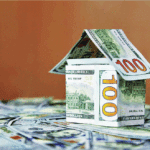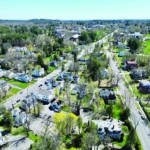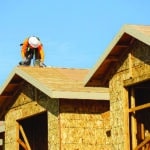
Massachusetts’ Clean Energy Plans Face a Reckoning
The wheels are coming off our current plans to transition to a clean energy future. It’s time for a debate on how we balance the speed of transition with making Massachusetts affordable.

The wheels are coming off our current plans to transition to a clean energy future. It’s time for a debate on how we balance the speed of transition with making Massachusetts affordable.

Just call it a tale of two real estate markets. Nationally, home prices have begun to level off and even decline in some markets – but here in Massachusetts, we continue to set new records, both statewide and in the perpetually overheated Greater Boston market.

It’s a wake-up call for elected leaders to move beyond incremental steps and pursue a bold, unified strategy – one that taps our world-class universities, research centers and talent to restore Massachusetts’ edge in innovation and opportunity.

A new report says, based on recent office sales and “weak” property tax collections, Boston’s property tax crunch could be getting worse.

It’s one of the Boston area’s most expensive yet fastest-growing clubs, and it’ll cost you seven figures to join. Fortunately, you can spread your payments over 30 years.

Dismal, with a side order of jittery buyers: That’s the state of the spring real estate market as it limps towards an inglorious finish.

When it comes to NIMBY opposition that derails plans for new housing, it’s not just the neighbors raising a stink. Every now and again, it’s also rival developers worried about the competition.

The battered life sciences sector is already sitting on enough empty lab space to fill 16 Prudential towers. Now, the Trump administration’s plans to cut billions in research grants will make the sector even worse.

Could Boston be faced with a repeat of the infamous Tregor decision, the decades-old state court ruling that upended city finances? A top city real estate lawyer thinks so, and he’s urging Boston’s mayor to take precautions.

The real and much more important story right now? Why it is so hard to build in Boston, and who is to blame for so little progress on the city’s biggest proposed developments.

But a line in the city budget acknowledging the impact of office and lab property values on Boston’s finances arguably downplays its severity as the mayor keeps focus on Trump, instead.

Maybe not so surprisingly, growing displays of open defiance by a handful of towns opposed to the MBTA Communities law are making lawmakers at the State House a bit nervous.

Revenue-sharing with TD Garden’s owner, the arena’s outdated feel and a record-shattering purchase price could push William Chisholm to build on one of Boston’s many big development sites.

For years, downtown office buildings were a solid bet for the public employee pension funds. Recent sales in downtown Boston show that’s not the case, anymore.

The Boston of the mid-2020s is far richer and more tolerant than it was half a century ago. But downtown is a weak spot in this success story as a new round of economic uncertainty strikes.

Boston and other progressive cities and states are struggling to produce new homes, even as red states boom. Just call it a case of the blue state housing blues.

As they spend billions on new AI ventures, tech companies are specifically seeking out states with nuclear plants, which can provide the kind of consistent, reliable power.

Too narrow a focus? That’s the big question about the Healey administration’s efforts to tackle the housing crisis to date, which have been skewed towards apartment projects.

The mayor’s defense of her housing policies ignores the experience of other cities. They dramatically hiked affordability requirements, only to see housing production collapse.

With Boston’s mayor being challenged on her housing record, she seems to be trying to burnish her credentials by taking credit for homes permitted under her predecessors.